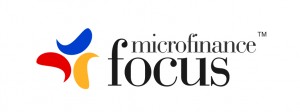Training Female Solar Entrepreneurs
In the Solomon Islands the demand for solar power is rapidly increasing, accounting for 50% of energy consumed. A pilot project in the Solomon Islands is training women to become solar technicians and entrepreneurs
In the Solomon Islands capital of Honiara, 19 enthusiastic entrepreneurs, 12 of them women, are receiving hands-on solar maintenance training. The 2-day workshop is part of an Asian Development Bank supported pilot project in the Pacific that encourages women to explore alternative livelihood opportunities. Participants in the first training session were selected in consultation with community members who emphasised the importance of including both men and women in the training activities.
The Women’s Economic Opportunity 2012 Index ranks Solomon Islands at 124 out of 128 countries. This reflects the minimal legal protection for women in the workplace, their limited access to financial services, and high illiteracy rates.
The Solomon Islands 2013 People’s Survey reveals that only 16% of women are in paid employment; the figure is even lower in rural and remote areas. Where formal salaried jobs are few and far between, new avenues need to be explored to provide women with income-earning opportunities and financial security.
In the Solomon Islands, women’s involvement in business and the private sector are constrained by a complex combination of factors including traditional gender norms, cultural perceptions, low levels of education, limited skills, and poor knowledge of business practices as well as other social and institutional constraints. One major constraint is that the enrollment rate for girls in secondary education is only at 39.6%. There is also low participation in technical skills training.
Creating Business Opportunities
The pilots are being implemented by the Pacific Private Sector Development Initiative (PSDI), a regional technical assistance facility co-financed by Asian Development Bank and Governments of Australia and New Zealand. The pilots are the first undertaken by PSDI’s new Economic Empowerment of Women programme. These are scalable pilots designed to remove barriers to women’s entry and participation in business and the private sector. The project creates business opportunities for women, assists them in accessing financial resources and markets and getting the necessary accreditation, and encourages them to make economic decisions.
The objective of the pilot project in the Solomon Islands is to equip women with the technical skills necessary to start a solar maintenance business as well as assist them in starting a business, opening a bank account, and entering into contracts for supply of services.
The project has identified solar panel repair and maintenance as a potentially good source of income in the country. The demand for solar power is rapidly increasing, accounting for 50% of energy consumed in the Solomon Islands. The Pacific Environment Community Fund is also supporting the installation of over 2,000 solar home systems in rural areas in the country.
Solar energy has brought many benefits to communities, including reduced expenditure on kerosene and diesel, improved safety, and increased household productivity. Children can now read and do homework in the evenings while the women can continue working on crafts and other items for sale.
“We no longer have to rely on kerosene to light our lamps and we can also use solar power to recharge our mobile phones,” says Joyce Suite’e, one of the workshop participants.
Lack of Solar Technicians
Households were required to pay a nominal amount for solar home systems and made upfront payment to cover repair and maintenance for a period of 2 years. Lack of transportation and the remoteness of villages in rural areas, however, have not made it easy for solar technicians to visit and conduct regular maintenance, resulting in many solar panels falling into disrepair.
The Economic Empowerment of Women pilot project is working with the West Are’Are Rokotanikeni Association in South-West Malaita where solar home systems have been installed in 718 households to identify and train women who are interested in starting a solar panel maintenance business.
During the first training session, participants learned how solar energy is generated, the safe way of checking and cleaning battery terminals and acid leaks, and the process for checking connections and restoring electrolyte levels. The technical training was supplemented with business advice and training. The workshop concluded with an exam and presentation of certificates. The Ministry of Mines, Energy and Rural Electrification of the Solomon Islands is a close partner in the pilot.
The workshop will be followed by bi-monthly training sessions in the villages to refresh technical skills and promote new practices.
“We need to learn more about maintaining solar panels,” says workshop participant Rhoda Hina’i. She adds that the additional income will help pay for tuition fees and her family’s basic needs.
Source: Asian Development Bank




